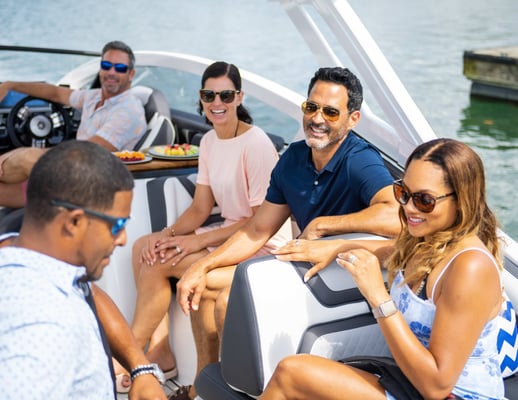Ahoy, boaters! Welcome back to Len's Cove Lessons in Boating. As the spring approaches, we are reminded that many new boating families will be taking to the water for the first time, and veteran boaters will be getting ready for the season ahead. When we help someone buy a boat, or we are talking to great long-term boaters, insurance often comes up. Today, we're delving into the often murky waters of boat insurance. Whether you're a seasoned captain or a fresh-faced sailor, ensuring your vessel is properly protected is paramount. Here are a few tips to help you navigate the sea of options when picking boat insurance:
PRO TIP (Essential): Ensure you have a "stand-alone" boat insurance policy (not a rider on your house or cottage). Unfortunately, you might one day need to rely on your policy and you do not want to jeopardize your home/cottage policy. also, the coverage is always superior in the stand alone versions.
Here are 4 things many boat insurance policies do not have that you want to make sure you get coverage for!
- Agreed Value Coverage: An Agreed Value Policy ensures that should something happen to the boat, the insurance company will give you the insured value without depreciation.
- Watersports Liability: Coverage would extend under the third-party liability section of the insurance policy to cover injuries that resulted from the watersports activities like waterskiing, Tubing, wakeboarding, and wake surfing.
- Varmint: Coverage is provided if a wild animal like a Raccoon, Squirrel, or Muskrat gets inside the boat and damages upholstery or chews on wires damaging mechanical systems. We have seen animals SINK boats!
- Emergency Towing: Should you have a mechanical breakdown on the water and call in for a tow, the cost of the tow back to the dock would be reimbursed with no deductible applied, and no claim on your record.
Not all boat policies are created equal.
More Insights:
-
Assess Your Needs: Before setting sail on the insurance journey, evaluate your boat's specifics. Consider factors like its value, how often you use it, and where you navigate. Understanding your needs will help you choose the appropriate coverage.
-
Shop Around: Don't settle for the first insurance provider you find. Explore multiple insurers to compare quotes and coverage options. Each insurer may offer different policies and premiums, so take the time to find the best fit for you.
- Review Deductibles and Limits: Check the deductibles and coverage limits of each policy before making a decision. Ensure they align with your budget and provide sufficient protection for your boat.
-
Look for Discounts: Many insurers offer discounts for safety features, completing boating safety courses, and bundling policies. Take advantage of these opportunities to lower your insurance costs.
-
Check Insurer Reputation: Research the reputation and financial stability of insurance companies before choosing a policy. Reading customer reviews and checking ratings can help you make an informed decision.
-
Review Annually: Regularly review your boat insurance policy to make sure it still meets your needs. Update your coverage as necessary to reflect any changes to your vessel or boating habits.
BONUS TIP: Increasing your deductible slightly can give you some annual savings on your premium.
Information for this article was provided in conjunction with Jared Chartrand, Northstar Marine Insurance Inc., Barrie, ON
Toll Free 1.866.717.9295 www.northstarinsurance.ca


